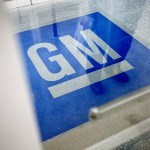The attorney overseeing General Motors’ compensation to victims of small-car crashes says there’s no limit to what the company will pay, provided the crashes were caused by faulty ignition switches. The tally could climb into billions of dollars.
GM links 13 deaths to defective ignition switches in cars such as the Chevrolet Cobalt and Saturn Ion. But trial lawyers and lawmakers say hundreds of others could file claims of wrongful death and injury.

Kenneth Feinberg, one of the country’s top compensation experts, said Monday that GM has placed no cap on the total amount he can pay to injured people or relatives of those killed. And he alone—not GM—will decide how much they each will get, even though he is being paid by the company, which did not like some of the program’s provisions.
Feinberg would not estimate the ultimate cost for GM, saying he has no idea how many claims will be made. But based on the methodology he plans to use, a large number of claims could raise the total settlement into the hundreds of millions of dollars, if not billions.
“GM has basically said whatever it costs to pay any eligible claims under the protocol, they will pay it. There is no ceiling,” Feinberg said at a news conference in Washington.
With the plan, GM is trying to limit its legal liabilities, control the damage to its image and eventually move beyond the crisis caused by its failure to correct the ignition-switch problem for more than a decade, even as it learned of fatal crashes. The company recalled 2.6 million older small cars earlier this year to replace the switches.
Only those hurt in crashes caused by the small-car ignition switches are eligible, so the program excludes other GM safety problems. Claims will have to prove that the switches caused the crashes. Once a claim is settled, victims give up their right to sue the company.
Claims can be filed from Aug. 1 to Dec. 31. Once the filing is complete, Feinberg promises payment in 90 to 180 days in most cases. People who previously settled lawsuits with GM are eligible to apply for more compensation.
Feinberg said he will not consider whether those injured in crashes contributed to the cause by drinking alcohol, speeding, not wearing seat belts or other behavior. But GM could use that as a defense if the cases go to trial, he said.
“We have no interest in evaluating any alleged contributory negligence on the part of the driver,” he said.
In many cases, the cars involved have been destroyed, and it will be difficult to determine if the switches caused the crash, Feinberg said.
“Unlike the 9/11 fund or the BP oil spill fund, many of these accidents occurred years ago,” Feinberg said. He urged those seeking compensation to use police, hospital, insurance and auto-repair records to buttress their claims. If the accident vehicle is still available, that’s even better, he said.
Feinberg said that he’s willing to meet privately with any crash victims or their families.
That’s “easily the most difficult part of this assignment,” he said. “It is very stressful, but it is essential because there are family members who want to be heard.”
 Legal experts say GM has almost no defenses left in crash lawsuits because it conceded the switches are defective and that its employees were negligent in failing to recall the cars. A GM-funded probe by an outside attorney blamed the delays on a dysfunctional corporate culture and misconduct by some employees. The company has dismissed 15 workers in the case.
Legal experts say GM has almost no defenses left in crash lawsuits because it conceded the switches are defective and that its employees were negligent in failing to recall the cars. A GM-funded probe by an outside attorney blamed the delays on a dysfunctional corporate culture and misconduct by some employees. The company has dismissed 15 workers in the case.
The ignition switches can slip from the “run” to the “accessory” position, unexpectedly shutting off the engines. That knocks out power steering and brakes and can cause drivers to lose control. In addition, the air bags won’t inflate because of lack of power. Feinberg said if the air bags inflated, that negates a claim because that means the crash wasn’t caused by the switch.
Laura Christian, who lost her daughter in a 2005 accident, attended the news conference. She said she had evidence that 165 people have died in accidents caused by the ignition-switch problem. She also said there is evidence in some cases that the driver succeeded in restarting the vehicle moments before the crash, leading to air bag deployment. She asked if Feinberg would consider such cases.
“I will be glad to consider anything you have,” Feinberg said.
Christian, of Harwood, Md., said she was undecided on whether to file for compensation or go to court.
“Some of us are going to feel a need to litigate whether it’s about finding an answer or making this so expensive that GM and other automakers will never do this again,” she said.
Feinberg will limit payments to people with less-serious injuries, based on how long they stayed in the hospital, similar to the way he compensated victims of the Boston Marathon bombings. But there is no cap on potential payments to relatives of those killed and people with catastrophic injuries that caused brain damage, amputation, serious burns or paralysis.
GM said in a statement that Feinberg’s plan shows the company is taking responsibility for what happened to victims “by treating them with compassion, decency and fairness.”
Feinberg acknowledged that some people will question his fairness, given that he was hired by GM.
“The only way you overcome that problem,” he said, “is by demonstrating through the awards that the program is fair.”





















 Execs, Risk Experts on Edge: Geopolitical Risks Top ‘Turbulent’ Outlook
Execs, Risk Experts on Edge: Geopolitical Risks Top ‘Turbulent’ Outlook  How Americans Are Using AI at Work: Gallup Poll
How Americans Are Using AI at Work: Gallup Poll  Nearly 26.2M Workers Are Expected to Miss Work on Super Bowl Monday
Nearly 26.2M Workers Are Expected to Miss Work on Super Bowl Monday  Earnings Wrap: With AI-First Mindset, ‘Sky Is the Limit’ at The Hartford
Earnings Wrap: With AI-First Mindset, ‘Sky Is the Limit’ at The Hartford 









